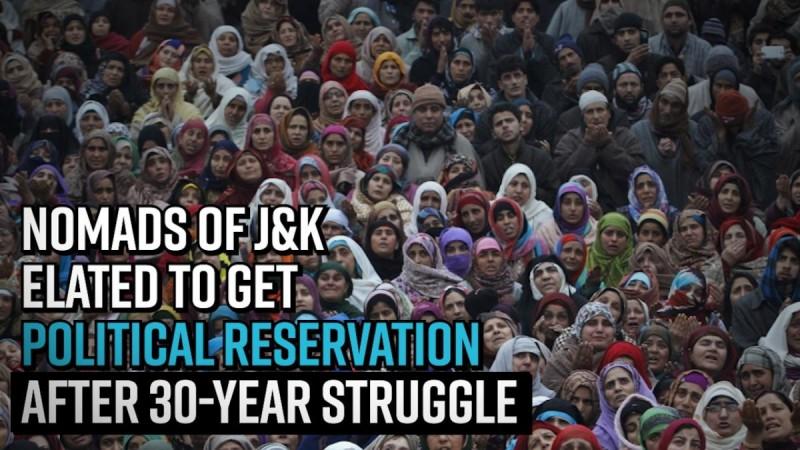Although the local BJP leaders are trying to "downplay" the forthcoming visit of Amit Shah as a "routine" to review developmental activities, the Union Home Minister is going to sound the poll bugle for the party in the Union Territory of Jammu and Kashmir.
Venues selected by the party for two rallies to be addressed by the Union Home Minister during his three-day visit to Jammu and Kashmir is a clear indication that the BJP is trying to woo Pahari-speaking Muslims of the Union Territory.
During his three-day visit to J&K from September 30 to October 2, Shah will address rallies in Rajouri and Baramulla districts. Both districts are dominated by Pahari-speaking people and the decision of the party to organize rallies reflects the party's agenda to focus on this dominant ethnic group of Jammu and Kashmir.

"Union Home Minister Amit Shah will address a rally at Rajouri on October 1 and another rally at Baramulla on October 2", Tarun Chugh, national general secretary of the party and in-charge J&K said while interacting with media persons.
Shah is likely to make some important announcements regarding Scheduled Tribe (ST) status to the Pahari-speaking people. Paharis are agitating to get ST status.
BJP focussing on Pahari Muslims
As reported earlier, BJP is focussing on prominent Pahari Muslims of Poonch and Rajouri districts to make inroads in these two Muslim majority districts of Jammu province.
Keeping in view the deep ethnic divide among Scheduled Tribes (STs) and Paharies in this mountainous belt, BJP is now focussing on Pahari Muslims to further expand its base in this belt. Already a prominent Pahari face of Rajouri, Mohammad Iqbal Malik has joined the party and won the election as a DDC member on a BJP ticket.
BJP has supported ST status for Paharies - a community that is a dominant force in Poonch, Rajouri districts of Jammu province, and Baramulla and Kupwara districts in Kashmir Valley.
This community has been demanding ST status for decades. There are 9.6 lakh Pahari community people in J&K.
In February, prominent Pahari leader and former minister Mushtaq Bukhari, who was the face of the NC in the Poonch district, left the party over the issue. Although he has not joined the BJP yet, he is in touch with party leaders.

BJP focuses on ethnic groups among Muslims ahead of Assembly poll
BJP has already identified Gujjars, Bakarwals, and Paharis of the mountainous belts of the state, and Sheenas, especially of the Gurez area of north Kashmir, as the ethnic groups among Muslims which will be involved in strengthening its base in some areas dominated by these groups.
By nominating a young Gujjar leader Ghulam Ali Khatana to the Rajya Sabha, the BJP has tried to win the trust of the Gujjar-Bakerwal, the third largest ethnic group of Jammu and Kashmir.
After setting a target of winning 50-plus seats in the maiden assembly elections in the Union Territory of J&K, the BJP is assiduously trying to make inroads among different sections of the society.
On the one hand, BJP has promised to grant Scheduled Tribe (STs) status to Pahari-speaking people while on the other hand, the party has played another calculated move by nominating a Gujjar to the Rajya Sabha.
After granting political reservations to the Scheduled Tribes (STs) BJP has taken this step to further strengthen its base among Gujjars and Bakerwals.
The Delimitation Commission in its report has reserved nine seats in the Legislative Assembly for Scheduled Tribes and seven for Scheduled Castes.
As far as the Paharis are concerned, BJP has already promised to grant ST status of this community. Twin border districts of Poonch and Rajouri in the Jammu region, and Bandipora, Kupwara, and Baramulla in north Kashmir are dominated by Pahari Muslims.
Sheenas, an ethnic group of Gurez, have already been declared STs and they will also get political reservations after the abrogation of Article 370.










